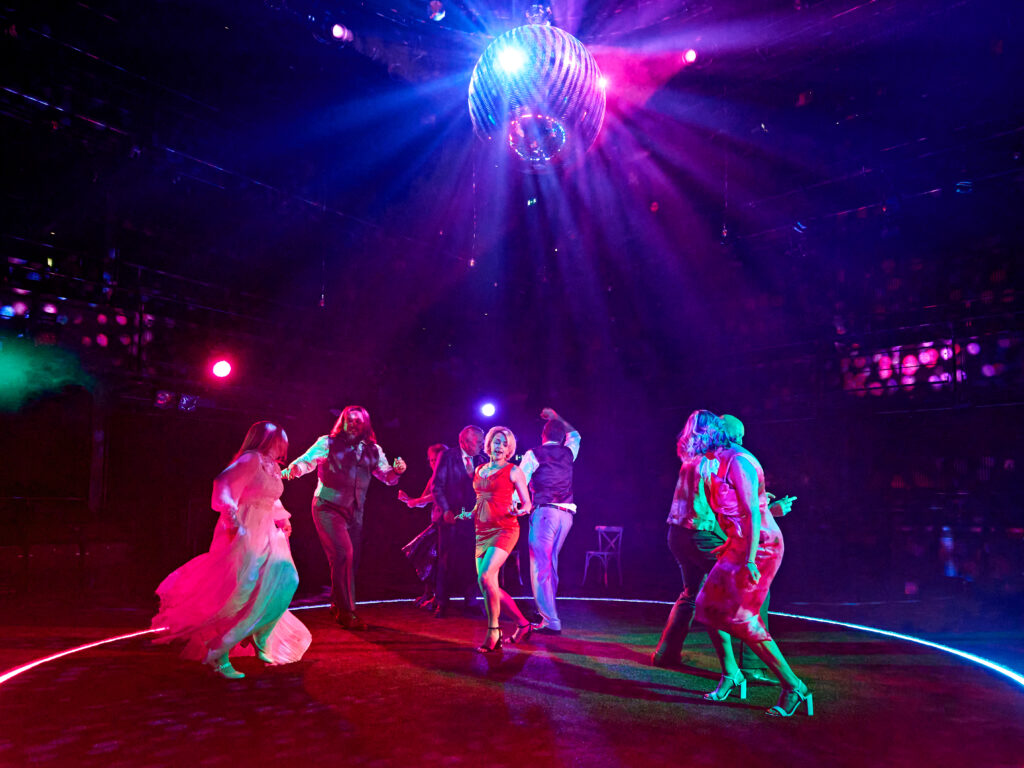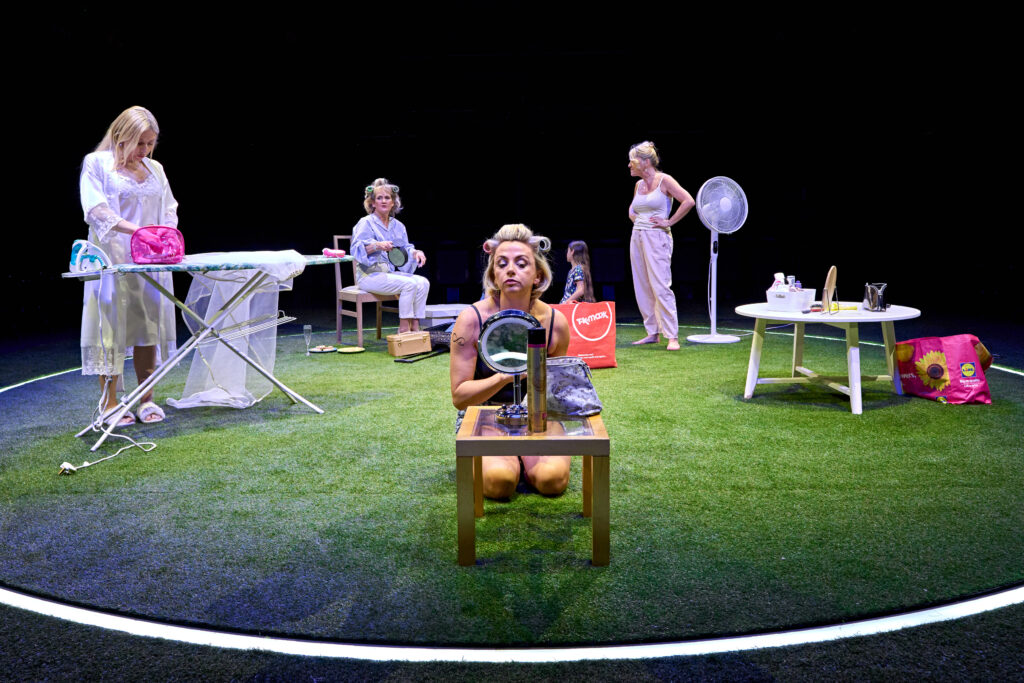
Is it a decent wedding if there hasn’t been a punch up asks one character midway through Beth Steel’s new play. Like Steel’s most recent work, House of Shades, which played at the Almeida in 2022, Till The Stars Come Down is an expansive affair set in the East Midlands amongst a working-class family.
But while House of Shades spanned decades, Steel’s Chekovian Till the Stars Come Down, directed by Bijan Sheibani, encompasses less than 24 hours in this family’s life, centred on three sisters – Sylvia (Sinéad Matthews), Maggie (Lisa McGrillis) and Hazel (Lucy Black). Despite this, she manages to encompass the history of the area, from the miners’ strike to present-day tensions over immigration, layering it all in comedy.

It’s Sylvia’s wedding day, the action opening in the morning as the sisters put the finishing touches to their make-up, before following the events of the day to the chaotic early hours of the next morning, through speeches, dancing to Britney, and actions increasingly fuelled by inebriation, i.e the referenced punch-up. The astroturf-laden, in-the-round design by Samal Blak casts us as guests at the wedding – Tony (the understated Alan Williams) delivering his Father of the Bridge speech from the top table as if we are the extended friends and family.
There is tension from the off: it’s Maggie’s first visit to the area since she moved away six months ago, though no one knows why, and Hazel is making no effort to hide her dislike of the Eastern European immigrants who have made the area their home and are seemingly the cause for all of her life’s woes, including the marital issues with her husband John (the plaintive Derek Riddell).
That dislike extends to Sylvia’s new husband, the Polish Marek (Marc Wootan), who spends the evening being subjected to the family’s tendencies towards bigotry. In Hazel, Steel encapsulates the person who sees only Schrödinger’s immigrants: those who are concurrently stealing jobs while lying around doing nothing all day. Marek stuns her by telling her she must decide whether she is superior or whether she is the victim.

There are exemplary performances across the cast with the scene-stealing Lorraine Ashbourne a particular highlight, revelling in the role of Aunt Carol; Steel arms her with the best comic zingers, from a play that full of quotable punchlines, and Ashbourne delivers them with aplomb – her appearances are worth the ticket price alone. Black’s Hazel is increasingly unlikeable as she digs down in self-defence when she feels under attack while McGrillis opens and closes as Maggie finds herself caught between desire and family preservation.
While the themes are grounded in the every day, Steel’s reaches beyond the ordinary to the cosmic; Uncle Pete (Philip Whitchurch) sends members of the family swirling into space as a human orrery, and as two of the group find themselves caught in each other’s orbit, the unfulfilled yearning is palpable. Choreographed by Aline David, it’s a moment that sears itself in the memory for its heart-stopping, subtle yet burning intensity. Steel and Sheibani struggle to land the conclusion, which builds from confusion and ends in intense melodrama in its quest to make a statement ending, and some themes feel brushed past rather than explored, but still, this incredibly affecting epic of a play demands your attention.
Till the Stars Come Down is at the National Theatre until 16 March 2024















